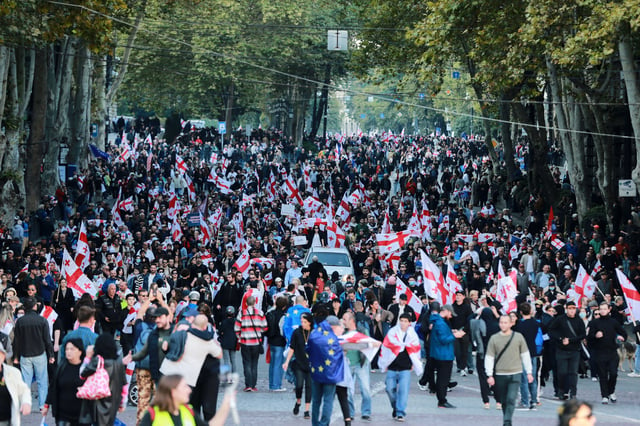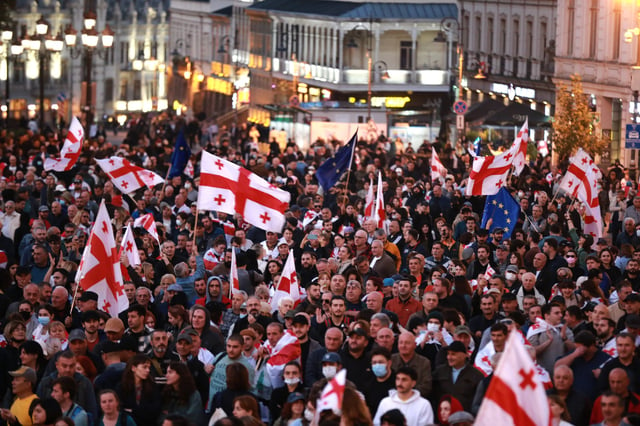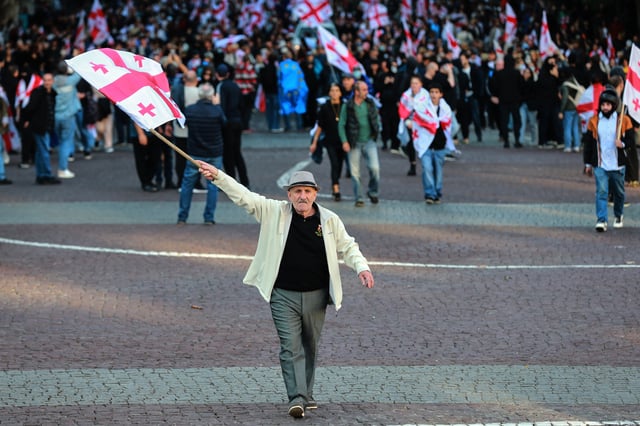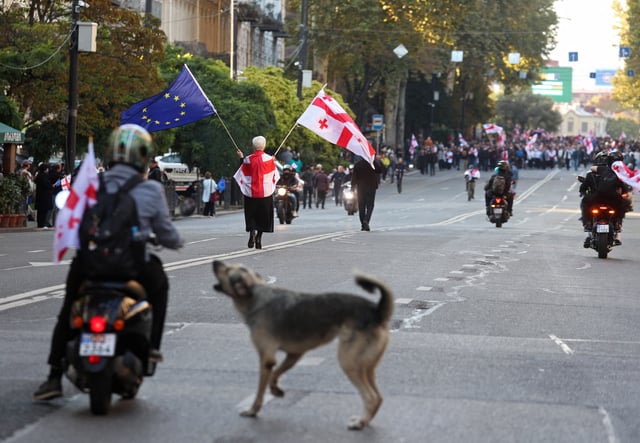Overview
- Riot police used water cannons, tear gas and pepper spray to push back crowds trying to enter the Atoneli Street presidential compound, with local reports saying a small group breached the courtyard before being repelled.
- Tens of thousands rallied in Tbilisi during municipal elections largely shunned by major opposition blocs after organizers cast the protest as a last chance to defend democracy.
- Georgian Dream said it won in every municipality, and Prime Minister Irakli Kobakhidze labeled the palace incident a criminal act, promised accountability and cited injuries to police.
- Major international observer missions did not deploy for the vote, while a Belarusian delegation reported calm polling stations and the use of ballot scanners.
- Rights groups say roughly 60 opposition figures, journalists and activists have been jailed over the past year as new laws and police actions tightened pressure on dissent.



